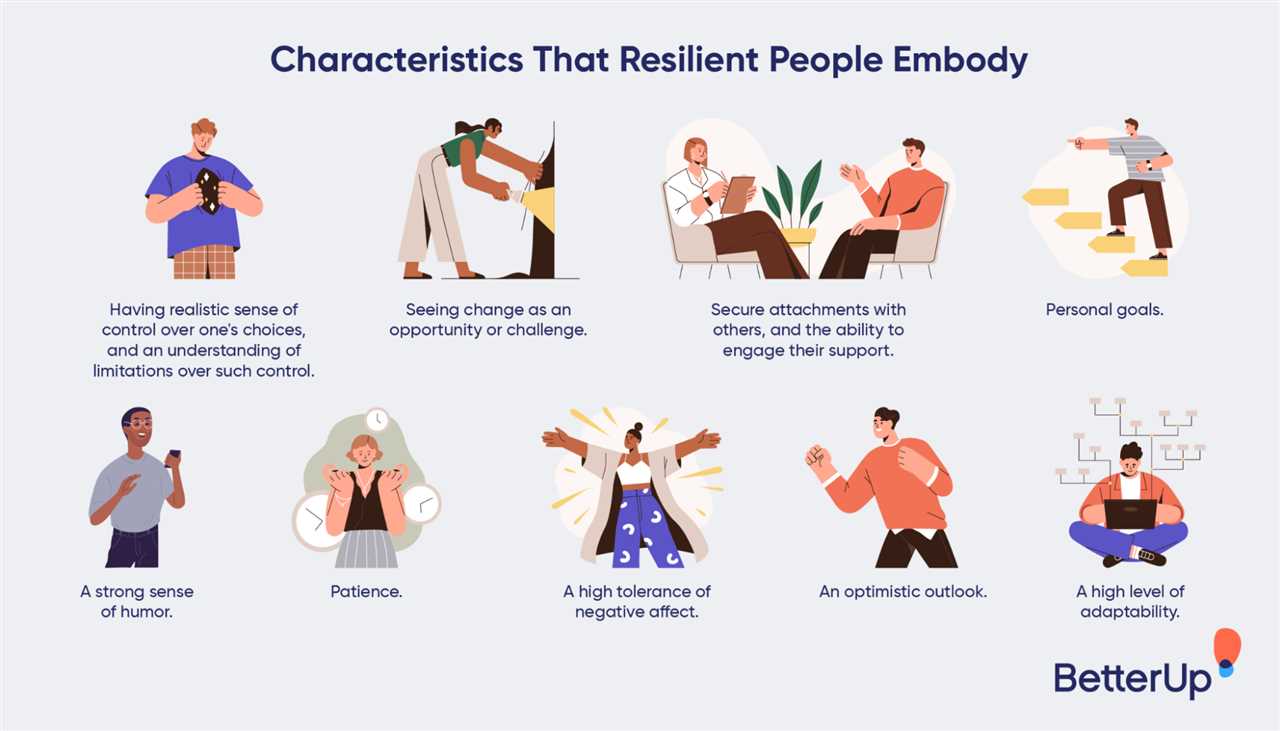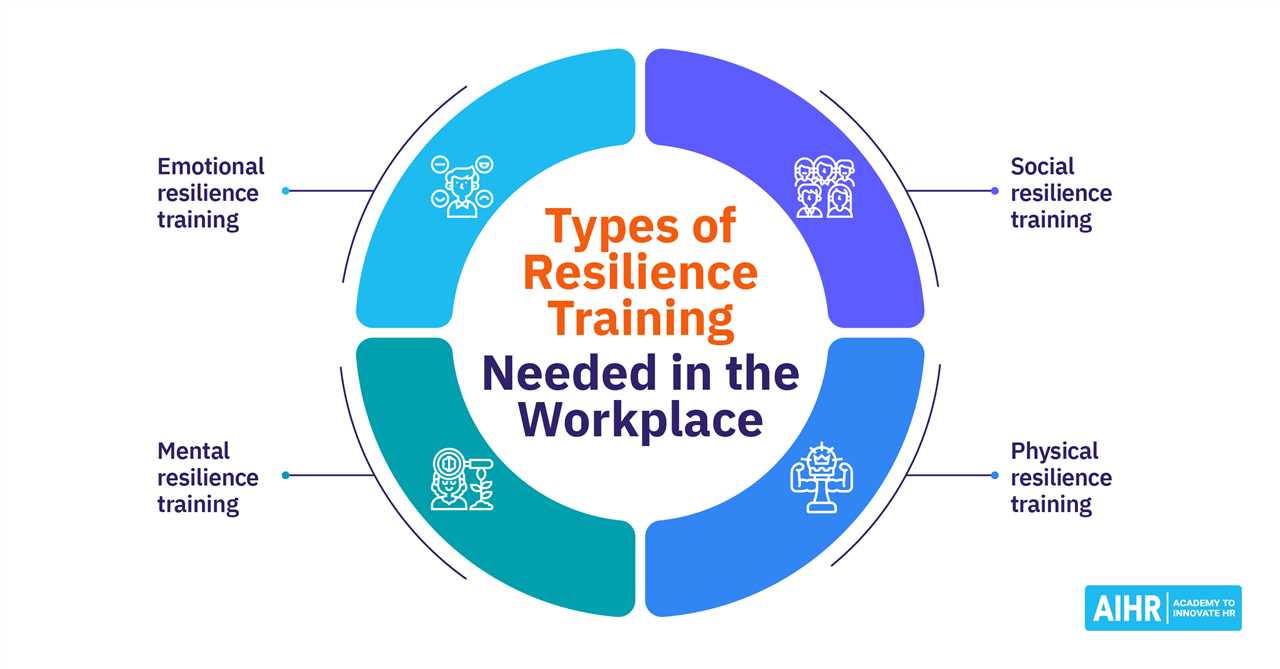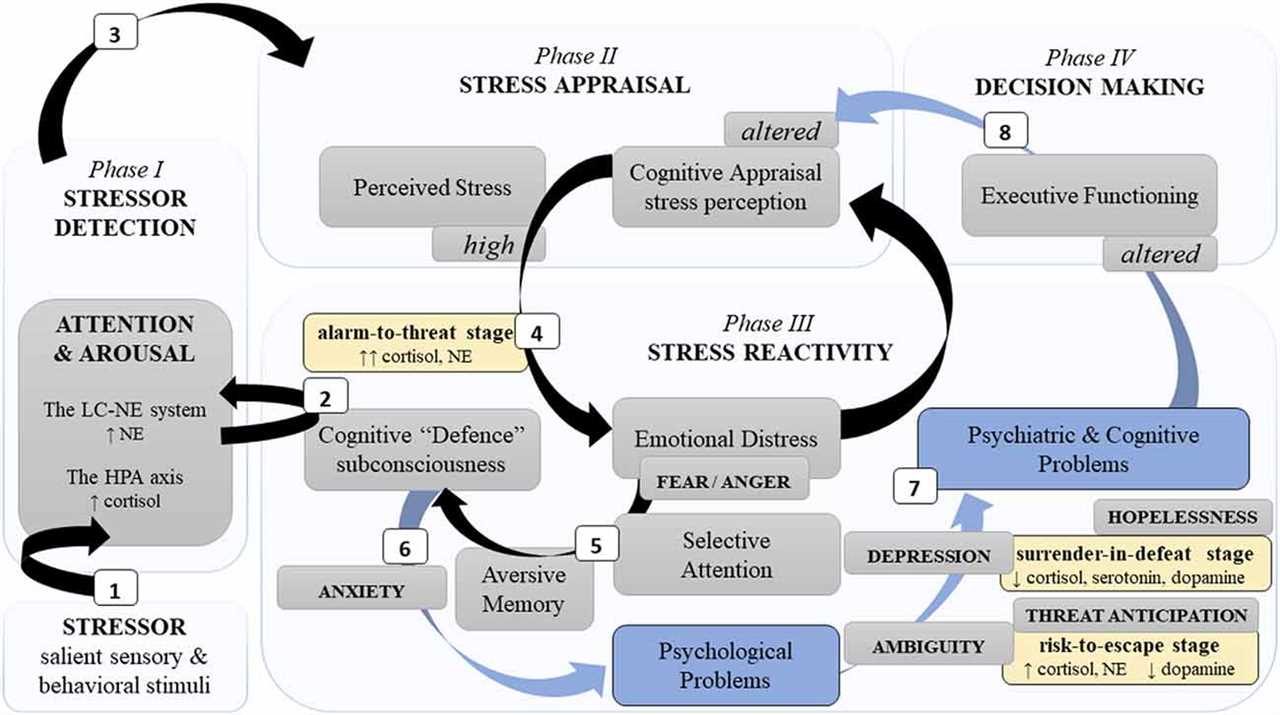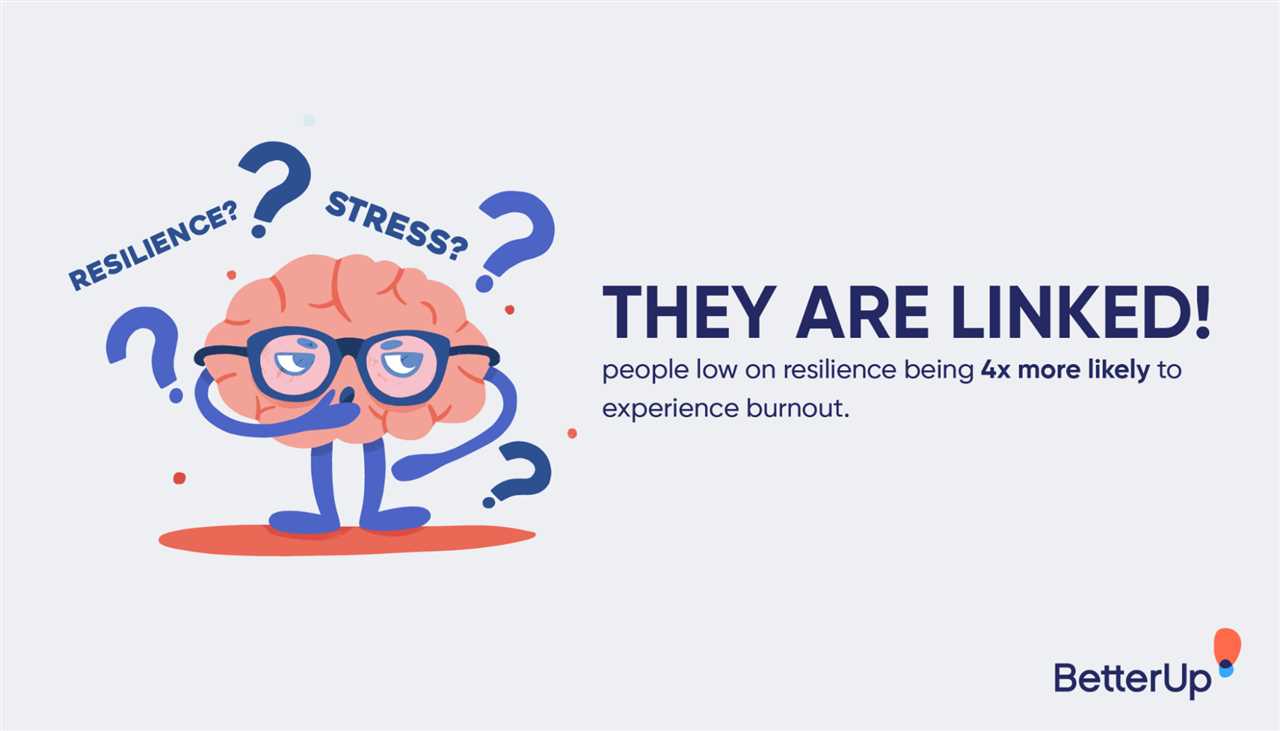
In today’s fast-paced and demanding world, stress has become a common part of our daily lives. Whether it’s due to work pressures, personal challenges, or unexpected life events, stress can have a significant impact on our mental health. However, understanding the resiliency model of stress can help us build stronger mental health and better cope with the challenges we face.
Resiliency is the ability to adapt and bounce back from stressful situations. It’s about maintaining a positive outlook, staying focused, and finding healthy ways to cope with stress. The resiliency model of stress emphasizes the importance of understanding our own strengths and weaknesses and developing strategies to overcome adversity.
One key aspect of the resiliency model is recognizing and managing our stress triggers. By identifying the situations, people, or events that cause stress in our lives, we can take proactive steps to reduce their impact. This might involve setting boundaries, practicing self-care, or seeking support from loved ones or professionals.
Another important component of the resiliency model is building a strong support network. Having a network of people who can provide emotional support, guidance, and encouragement can make a significant difference in our ability to manage stress. Whether it’s friends, family, or support groups, having people we can rely on can help us navigate difficult times and build resilience.
Additionally, the resiliency model encourages us to develop healthy coping mechanisms. This might include engaging in activities that bring us joy and relaxation, such as exercise, hobbies, or mindfulness practices. By finding healthy outlets for stress, we can reduce its impact on our mental health and build resilience for the future.
In conclusion, understanding the resiliency model of stress is essential for building stronger mental health. By recognizing our stress triggers, building a support network, and developing healthy coping mechanisms, we can better navigate the challenges we face and emerge stronger on the other side. With resilience, we can not only manage stress but also thrive in the face of adversity.
What is the Resiliency Model?

The Resiliency Model is a framework for understanding and addressing stress and building stronger mental health. It is based on the concept of resiliency, which is the ability to bounce back and adapt in the face of adversity.
Stress is a natural part of life, but when it becomes overwhelming and chronic, it can have a negative impact on our mental and physical well-being. The Resiliency Model provides tools and techniques to help individuals develop resilience and effectively manage stress.
One of the key principles of the Resiliency Model is the understanding that stress is not necessarily a bad thing. In fact, stress can be a motivator and can help us grow and develop. However, when stress becomes too intense or prolonged, it can lead to burnout and other negative effects.
The Resiliency Model helps individuals identify their personal stressors and develop strategies to manage them effectively. It emphasizes the importance of self-care, self-awareness, and self-regulation. By learning to recognize and respond to stress in a healthy way, individuals can build stronger mental health and enhance their overall well-being.
Definition and Importance

The resiliency model is a framework that focuses on understanding and building stronger mental health. It is based on the concept of resilience, which refers to the ability to bounce back from adversity and maintain a sense of well-being.
This model emphasizes the importance of developing coping strategies and skills to effectively manage stress and overcome challenges. It recognizes that stress is a natural part of life and that building resilience can help individuals navigate through difficult times and maintain mental health.
Understanding and implementing the resiliency model can have a significant impact on individuals’ overall well-being. It can help them develop a positive mindset, improve problem-solving abilities, and enhance their ability to adapt to change. By building resilience, individuals can better manage stress, reduce the risk of mental health issues, and lead healthier and more fulfilling lives.
Components of the Resiliency Model

The resiliency model is a comprehensive framework that helps individuals build stronger mental health and cope with stress. It consists of several key components that work together to promote resilience and enhance overall well-being.
1. Self-awareness: Understanding one’s own thoughts, emotions, and behaviors is an essential part of the resiliency model. By being aware of their own strengths and weaknesses, individuals can better navigate challenges and make informed decisions to promote their mental health.
2. Emotional regulation: Emotions play a significant role in how individuals respond to stress. The resiliency model emphasizes the importance of developing healthy coping mechanisms to regulate emotions effectively. This can include practices such as mindfulness, deep breathing exercises, and seeking support from others.
3. Cognitive restructuring: Negative thinking patterns can contribute to stress and hinder resilience. The resiliency model encourages individuals to identify and challenge negative thoughts, replacing them with more positive and realistic ones. This process, known as cognitive restructuring, can help individuals develop a more optimistic outlook and build resilience.
4. Social support: Building strong connections with others is crucial for resilience. The resiliency model recognizes the importance of social support in times of stress and encourages individuals to seek help from friends, family, or professional networks. Having a support system can provide emotional validation, practical assistance, and a sense of belonging.
5. Adaptive coping strategies: The resiliency model promotes the use of adaptive coping strategies to manage stress effectively. This can include engaging in physical exercise, practicing relaxation techniques, engaging in hobbies, or seeking professional help when needed. By developing a toolbox of healthy coping mechanisms, individuals can better navigate stressful situations and build resilience over time.
| Components | Description |
|---|---|
| Self-awareness | Understanding one’s own thoughts, emotions, and behaviors |
| Emotional regulation | Developing healthy coping mechanisms to regulate emotions |
| Cognitive restructuring | Identifying and challenging negative thoughts |
| Social support | Building strong connections with others |
| Adaptive coping strategies | Engaging in healthy coping mechanisms |
Benefits of Developing Resiliency

Developing resiliency can have numerous benefits for individuals in managing stress and building stronger mental health. Resiliency refers to the ability to bounce back from adversity and adapt to challenging circumstances. By cultivating resiliency, individuals can experience the following benefits:
1. Improved Stress Management: Resiliency helps individuals better manage stress by developing effective coping mechanisms and strategies. It enables them to navigate through difficult situations with a more positive and proactive mindset, reducing the negative impact of stress on their mental health.
2. Enhanced Emotional Well-being: Resilient individuals are better equipped to regulate their emotions and maintain a positive outlook even in the face of adversity. They are more likely to experience increased emotional well-being, including higher levels of happiness, satisfaction, and overall mental well-being.
3. Increased Problem-Solving Skills: Developing resiliency fosters problem-solving skills, as individuals are encouraged to seek solutions and alternatives when faced with challenges. This ability to think critically and creatively enhances their problem-solving abilities, enabling them to overcome obstacles more effectively.
4. Stronger Relationships: Resilient individuals often exhibit better interpersonal skills and communication, leading to stronger and more meaningful relationships. They are better able to navigate conflicts and maintain healthy connections, ultimately contributing to their overall mental health and well-being.
5. Greater Self-Confidence: Building resiliency cultivates a sense of self-confidence and self-belief. Individuals who are resilient have a greater belief in their abilities to overcome challenges and achieve their goals, leading to increased self-esteem and self-assurance.
6. Improved Physical Health: Resiliency has been linked to improved physical health outcomes. By effectively managing stress and maintaining a positive mindset, individuals can experience reduced physical symptoms of stress, such as headaches, muscle tension, and sleep disturbances.
7. Increased Adaptability: Resilient individuals are more adaptable to change and can adjust to new circumstances and challenges more easily. This adaptability allows them to navigate transitions and uncertainties with greater ease, reducing the negative impact of stress on their mental health.
In conclusion, developing resiliency offers numerous benefits for individuals, including improved stress management, enhanced emotional well-being, increased problem-solving skills, stronger relationships, greater self-confidence, improved physical health, and increased adaptability. By investing in building resiliency, individuals can strengthen their mental health and better navigate the challenges of life.
Building Stronger Mental Health through the Resiliency Model

The Resiliency Model is a powerful tool for building stronger mental health. This model emphasizes the importance of developing resilience in order to effectively navigate and recover from stressors. Resilience can be thought of as the ability to bounce back from adversity and maintain mental well-being in the face of challenges.
One key aspect of the Resiliency Model is the recognition that stress is a normal part of life. Rather than trying to eliminate stress entirely, the model encourages individuals to develop skills and strategies to better manage and cope with stress. This can include building a support network, practicing self-care, and developing healthy coping mechanisms.
Another important component of the Resiliency Model is the focus on self-awareness and self-regulation. By understanding one’s own emotions, triggers, and coping mechanisms, individuals can better navigate stressful situations and make healthier choices. This self-awareness also allows individuals to identify when they may need additional support or resources.
The Resiliency Model also emphasizes the importance of fostering positive relationships and social connections. Building a strong support network can provide individuals with a sense of belonging, validation, and encouragement. These relationships can also serve as a buffer against stress and provide opportunities for growth and learning.
Through the Resiliency Model, individuals can develop the skills and mindset needed to build stronger mental health. By embracing stress as a part of life and developing effective coping strategies, individuals can become more resilient and better equipped to face life’s challenges. This model empowers individuals to take control of their mental well-being and build a foundation for long-term mental health and happiness.
Identifying and Managing Stressors

In order to build stronger mental health and develop resiliency, it is important to identify and manage the stressors in your life. Stressors are the external factors that can cause stress and impact your well-being. By recognizing and addressing these stressors, you can take steps to reduce their impact on your mental health.
One key aspect of identifying stressors is understanding that they can vary from person to person. What may be stressful for one individual may not be for another. It is important to take the time to reflect on your own experiences and determine what triggers stress for you personally.
Common stressors can include work or school pressures, financial difficulties, relationship problems, health issues, and major life changes. These stressors can manifest in different ways, such as physical symptoms, emotional distress, or changes in behavior.
Once you have identified your stressors, it is important to develop strategies for managing them. This can involve seeking support from friends, family, or professionals, practicing stress-reducing techniques such as mindfulness or exercise, and making lifestyle changes to reduce overall stress levels.
It is also important to remember that managing stress is an ongoing process. As life circumstances change, new stressors may arise, and it is important to adapt your coping strategies accordingly. Building resiliency involves developing a toolbox of techniques and resources that can help you navigate and manage stress throughout your life.
In conclusion, identifying and managing stressors is a crucial step in building stronger mental health and developing resiliency. By recognizing what triggers stress in your life and implementing strategies to address and reduce these stressors, you can take control of your mental well-being and build a foundation for long-term resilience.
Developing Coping Strategies

In the resiliency model of stress, developing coping strategies is an essential component of building stronger mental health. Coping strategies are techniques and skills that individuals can use to effectively manage and reduce stress. These strategies can help individuals navigate difficult situations, handle challenges, and maintain a sense of well-being.
One important aspect of developing coping strategies is self-awareness. It is crucial for individuals to identify their stressors and understand how they affect them. By recognizing the triggers and patterns of stress, individuals can develop coping strategies that are specific to their needs and circumstances.
Another key element in developing coping strategies is seeking support. It is important for individuals to reach out to trusted friends, family members, or professionals who can provide guidance and assistance. Talking to someone about the stressors can help individuals gain perspective, receive validation, and explore potential solutions.
Furthermore, practicing self-care is an essential part of developing coping strategies. Engaging in activities that promote relaxation, such as exercise, meditation, or hobbies, can help individuals manage stress and maintain a balance in their lives. Taking care of one’s physical, emotional, and mental well-being is crucial for building resilience and effectively managing stress.
Additionally, developing healthy coping strategies involves reframing negative thoughts and adopting a positive mindset. By challenging negative beliefs and replacing them with positive and realistic ones, individuals can reduce the impact of stress and improve their overall well-being.
In conclusion, developing coping strategies is a fundamental aspect of the resiliency model of stress. By increasing self-awareness, seeking support, practicing self-care, and adopting a positive mindset, individuals can effectively manage and reduce stress, ultimately building stronger mental health.

I am Patrina de Silva, a psychologist and mental health blogger in Sri Lanka. After obtaining psychology degrees from the University of Colombo and Monash University, I returned home to work as a counselor while also starting the popular blog “Pressy but Happy” to provide advice on psychological issues. Over the past decade, my empathetic articles have made my blog a leading mental health resource in the country. In addition to writing, I maintain a private therapy practice, frequently volunteer counseling time, and conduct seminars, driven by my passion for destigmatizing mental illness and educating the public on the mind-body connection. I strive to be an influential voice in my field through my compassionate approach.
